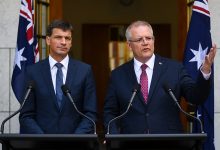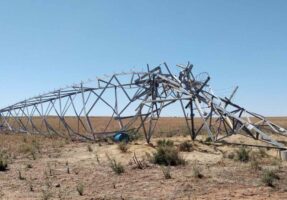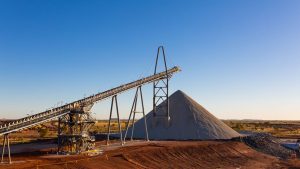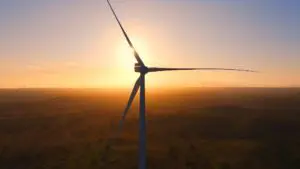The history of war tells us that such events are usually launched on doubtful and fabricated pretexts: The US war in Iraq, the German invasion in Europe at the start of WWII, all the way back to Julius Caesar’s invasion of Britain, and just about every war in between.
And so it is with the extraordinary attack launched on Australia’s future by its incumbent fossil fuel industry, and the gas lobby in particular. Its casus belli is the Covid-19 pandemic, and the fossil fuel industry has been enabled to do this after being invited by the Morrison regime to do more or less at it pleases and design its own future.
The reach and sheer audacity of the proposals unveiled over the past week is extraordinary, and the lasting impact on Australia’s future may dwarf anything that Tony Abbott and his Far Right cheerleaders may have done; notwithstanding his white-anting of the Carbon Pollution Reductions Scheme more than a decade ago, the scrapping of the carbon price in 2014 and the unceasing campaign against science and engineering.
This is the critical decade. Scientists tell us, repeatedly and with a near unanimous voice, that serious emissions reductions must be achieved in the next 10 years if the world is to flatten the emissions curve and give itself half a chance of capping average global warming at less than 2°C. A target of 1.5°C may already be out of reach.
Australia finds itself at a critical juncture. It benefits from the stunning cost reductions in solar, wind and battery storage, and key institutions have mapped out a path to a high renewable energy grid. Experts are shining the light on a future of green manufacturing and “green energy exports” that could enhance the position of the country as a significant energy superpower.
But the fossil fuel industry and its backers, with their focus almost entirely on short-term profits and ideological claptrap, have other ideas. They have decided to throw a live grenade into Australia’s own economic bunker, and its environment, and put the future of the current and emerging generation at risk.
Consider the list of what has emerged from the government-appointed gas-industry led reviews in the past week, including the King Review, the Covid Commission, the technology investment roadmap, and from the intense pressure being put on energy regulators.
– Bastardising the remit of the Clean Energy Finance Corporation and the Australian Renewable Energy Agency in an attempt to to force them to invest away from renewable and smart and enabling technologies and into gas and carbon capture and storage.
– Polluting the already controversial and ineffective Climate Solutions Fund by creating a “base-line” that industry experts suggest will allow big polluters to increase their emissions and get paid for doing so.
– Delaying critical energy market rule changes and reforms that might have encouraged smart new technologies such as battery storage and demand management, and end the rorting of the current system by incumbent coal, gas and hydro generators.
– Pushing the case for gas and CCS in a “technology investment roadmap” that otherwise clearly identifies wind, solar, storage and other technologies such as EVs, heat pumps, energy efficiency and demand management as the cheapest and most reliable options.
However, none of these quite reaches the breadth, depth and cynicism of the so-called Covid-Commission, which appears entirely possessed with the narrow interests of the gas industry, from where many of these commissioners have emerged.
A leaked master plan from the manufacturing taskforce of the NCCC – its formal acronym – has as its centrepiece a mad proposal to resuscitate a widely discredited multi-billion dollar plan to build an east-west gas pipeline, locking in a white elephant at taxpayers expense for decades to come.
But it is the sheer range and scale of the government subsidies proposed that beggars belief.
The Covid Commission wants the government to underwrite new gas generators, get state governments to sign “contracts for difference” to further underpin gas supply, provide cheap capital for smaller companies, provide tax incentives for gas infrastructure, directly finance new pipelines and “gas hubs,” jump regulatory barriers to fast-track these investments, and adjust the regulatory returns.
It also proposes a range of different support measures and government interventions, including “take or pay” contacts, lifting state-based moratoria on gas exploitation, and cutting red and green tape.
This from an industry that has been around for half a century, and claims to be both low cost and low emissions – neither of which is true on any assessment.
At the proposed gas prices assumed under the Covid plan, more than half of the gas reserves in Australia would be uneconomic, according to energy experts. The plan simply doesn’t stack up without massive government intervention and huge taxpayer subsidies.
The advice flies in the face of expert assessments on the future of the grid from Australian Energy Market Operator, seeks to reverse the shift from baseload to flexible and dispatchable generation, and ignores the potential of using genuinely low-emissions technologies to both lower the cost and green up Australia’s manufacturing and energy-intensive industries.
The brazenness of this assault from the gas industry has taken many in the energy sector by surprise. They say, however, that this is no accident, for the plan is sophisticated and premeditated, even if the circumstances – government fiat under the pretext of Covid-19 – are opportunistic.
Energy experts describe it variously as “nuts” and an “outrage”, destined to saddle the country with higher costs, higher emissions and stranded assets. Some recognisable commentators have had this to say:

 The Covid Commission even had the chutzpah to declare this series of government interventions and subsidies to be “market based”, but it was simply too much even for others in the gas industry. The Australian Energy Council warned that markets should be allowed to work, and the main oil and gas lobby APPEA warned “it should not subsidise already commercial or mature technologies.”
The Covid Commission even had the chutzpah to declare this series of government interventions and subsidies to be “market based”, but it was simply too much even for others in the gas industry. The Australian Energy Council warned that markets should be allowed to work, and the main oil and gas lobby APPEA warned “it should not subsidise already commercial or mature technologies.”
APPEA said such subsidies and interventions “would simply undermine private investor confidence and inhibit market efficiencies.” That has already been witnessed by the federal government’s underwriting scheme that is focused on new gas generation and has already brought investment to new dispatchable technologies to a crashing halt.
But APPEA was otherwise pretty happy with the broad thrust of the commission. Why wouldn’t it be? And who is going to stop this assault from the gas industry? Where are the points of resistance?
Certainly not in the PM’s office, where the gas lobbyists must come face to face with their old mates in Morrison’s advisory team, which includes the former CEO and deputy CEO of the fossil fuel industry’s peak lobby group, the Minerals Council of Australia.
Morrison himself, according to an article published on John Menadue’s site last week, is one of 22 current Coalition MPs and Senators who form part of the network built around the Institute of Public Affairs and its satellites. Not not one thinker of note amongst them, the author writes. They don’t support government intervention, unless it is on behalf of their backers. See: IPA is wrecking our democracy.
Nor will resistence be encountered in the office of the minister of energy. Angus Taylor, who has governed his portfolio by intervention, and undermined investor confidence along the way. His fingerprints are all over these initiatives. He has made no secret of his desire to see a “gas-led recovery” and can barely bring himself to utter the words ‘wind,’ ‘solar’ and ‘batteries,’ let alone give them support.
This is partly led by Taylor’s personal ideology, and partly by personal ambition. The one-time ferocious anti-wind campaigner – despite the smell of scandal that hovers around his office – is also relentlessly ambitious. He wants to be PM. And this is just as much about currying favour in the Coalition and media’s right-wing rump as it is about any economic or policy vision.
In summary, this is disaster capitalism at its worst. Gas, because of the release of methane, is little better than coal when it comes to greenhouse gas emissions. Its role as a “transition” fuel is questionable at best, and terribly short-sighted, and the construction of expensive gas infrastructure destined to be stranded assets is pure madness.
How did it come to this? How did this committee get appointed. Who holds it to account? Here is the PM’s secretary Phil Gaetjens dodging the questions at a Senate committee last week:
“I think it was for the networks they have across business to, as I said, get ideas from business about what an obstacle is and how to actually treat things. So I’m not aware of any specific issue that related to how they were chosen. I think it was a quick but broad process that actually got these people.”
Sir Humphrey he is not, but the intent to obscure is clear enough.
RenewEconomy and its sister sites One Step Off The Grid and The Driven will continue to publish throughout the Covid-19 crisis, posting good news about technology and project development, and holding government, regulators and business to account. But as the conference market evaporates, and some advertisers pull in their budgets, readers can help by making a voluntary donation here to help ensure we can continue to offer the service free of charge and to as wide an audience as possible. Thankyou for your support.










